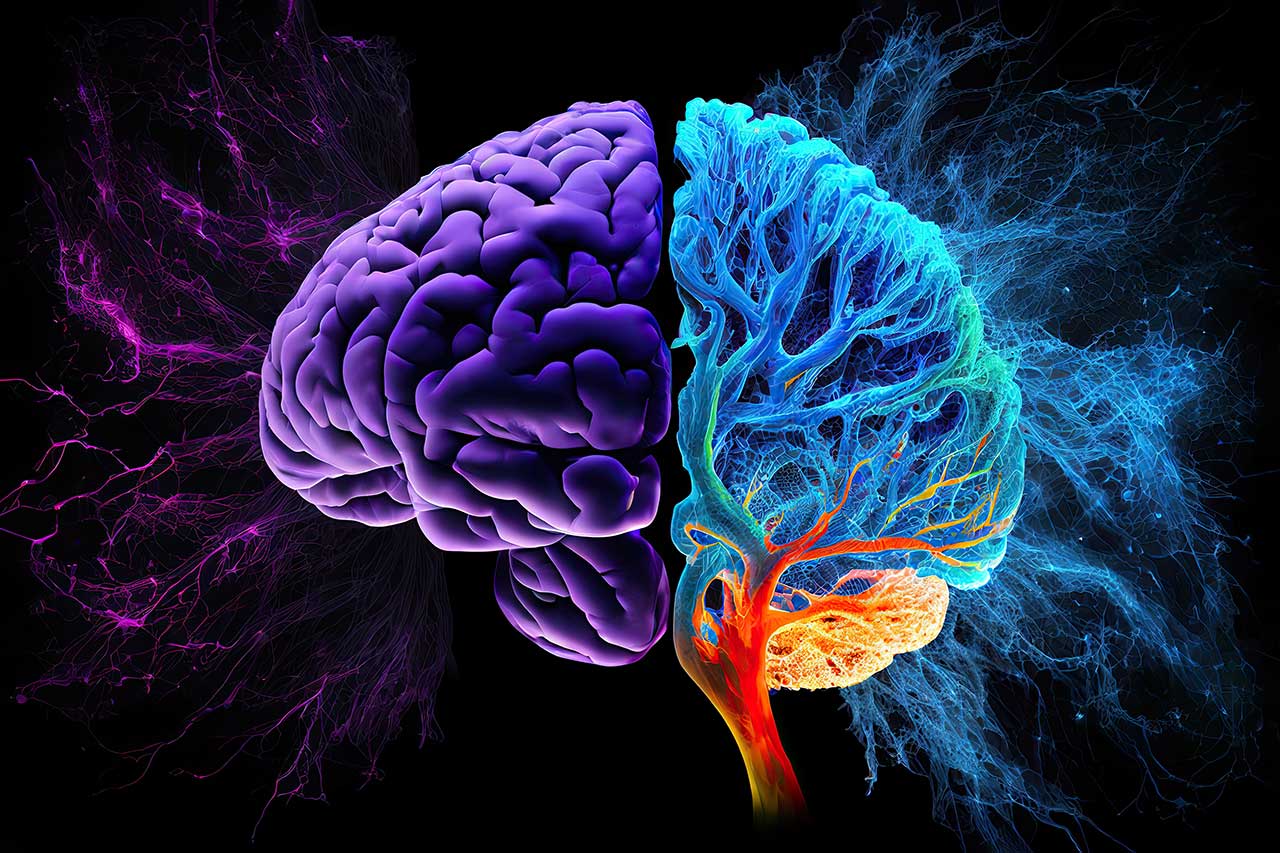Many of the richest and most successful entrepreneurs in the world are neurodivergent.
Neurodiversity is a term that refers to the diversity of the human brain and how it functions. It includes individuals who have conditions such as autism, ADHD, dyslexia, and more.
In recent years, there has been a growing awareness of the unique strengths and talents that individuals with neurodiverse conditions bring to the table. This is especially true in the world of entrepreneurship.
Entrepreneurship is all about innovation, creativity, and problem-solving. These are all skills that many individuals with neurodiverse conditions possess in abundance.
In this blog post, we will explore some amazing facts about neurodiversity and entrepreneurship. We will look at the unique strengths that can make neurodiversity an asset for developing successful entrepreneurial ventures, as well as posing challenges that can derail progress.
At the end, we will also explore the ways in which society can support individuals with neurodiverse conditions as they pursue their entrepreneurial dreams.
It’s important to note that having a neurodiverse condition doesn’t make you a better entrepreneur, but it does bring a unique perspective and set of skills that can be valuable in entrepreneurship.
The purpose of this post is to raise awareness and provide inspiration for those who may have a neurodiverse condition.
Without further adieu, here are some of the most amazing facts about neurodiversity and entrepreneurs that I could find.
1. People with ADHD are 500% more likely to be entrepreneurs.
It is estimated that 4-5% of adults have ADHD and 29% of entrepreneurs. Research estimates that 3.3 million American adults have been diagnosed with ADHD, but 85% of people are undiagnosed.
Characteristics of ADHD such as divergent thinking, flexibility of thought, and perceptual curiosity make people with ADHD excellent entrepreneurs if they can learn to focus on the right things and remove their distraction kryptonite.
ADHD is also associated with risk-taking behavior, high energy, and the ability to multitask and switch between tasks quickly, which can be beneficial for managing multiple projects and responsibilities.
2. Famous entrepreneurs with ADHD include Richard Branson, Charles Schwab and Tim Ferriss.
Many successful entrepreneurs have ADHD. Some ADHD traits that can help with entrepreneurship include the ability to hyperfocus on things that interest them, a natural ability to think outside the box and come up with unique creative solutions to problems, and a willingness to take risks.
Many entrepreneurs with ADHD have developed strong resilience skills due to the challenges they face in their daily lives. This can help them to bounce back from setbacks and persevere in the face of adversity.
ADHD can also make individuals more adaptable and able to think on their feet. This can be an advantage when dealing with the unexpected twists and turns of entrepreneurship.
ADHD is thought to be even more prevalent among different kinds of artists including famous people such as Leonardo Da Vinci, Jim Carrey, Will.i.am, Ryan Gosling and Adam Levine.
3. People with dyslexia are 230% more likely to be entrepreneurs.
It is estimated that 15% of people have dyslexia and 35% of entrepreneurs. In the United States, it is estimated that over 40 million American adults are dyslexic yet only 2 million know it.
A study of self-made millionaires in the U.K. found that 40 percent were dyslexic. Former Cisco CEO Chambers estimates that “25 percent of CEOs are dyslexic, but many don’t want to talk about it.”
“It’s time we all understand dyslexia properly as a different thinking skill-set, not a disadvantage.” says Sir Richard Branson who is well-known for his neurodivergence advocacy.
4. Famous entrepreneurs with dyslexia include Steve Jobs, Walt Disney and Henry Ford.
The list of dyslexic billionaires and successful entrepreneurs is very long.
Dyslexia is a learning disorder that affects an individual’s ability to process written language. Despite this, many entrepreneurs who are dyslexic have found success in their field by utilizing their unique strengths and talents.
Many individuals with dyslexia have a natural ability to think in visual terms, which can be an advantage in fields such as design, architecture, and advertising.
Dyslexic entrepreneurs may have a unique perspective on problems and challenges, allowing them to come up with creative and innovative solutions.
Entrepreneurs with dyslexia may have developed strong resilience skills due to the challenges they have faced in their academic and professional lives.
5. A large number of tech professionals and Silicon Valley entrepreneurs have Aspergers.
An individual with Asperger’s Syndrome — a form of autism — often has limited social skills, a willingness to obsess, and a strong interest in systems.
Similar to ADHD, individuals with Aspergers are more to become entrepreneurs but they are also more likely to end up in prison than the general neurotypical population. I believe it largely comes down to mentorship and having an environment that supports their neurodivergence.
Legendary Silicon Valley investor Peter Thiel argues that mild Aspergers frees entrepreneurs from “an attachment to social conventions, have the strength to create innovative businesses amid a culture that discourages daring entrepreneurship.”
It’s important to note that success is a multifactorial and complex phenomenon, and there is no one-size-fits-all answer for it. Factors such as hard work, perseverance, networking, and luck also play a role in the success of an entrepreneur.
6. Famous entrepreneurs with Aspergers include Elon Musk, Bill Gates and Nikola Tesla.
Other brilliant geniuses considered to have high-functioning autism include Albert Einstein, Isaac Newton, Thomas Edison, and Leonardo Da Vinci.
There is no clear answer as to why entrepreneurs like Elon Musk with Asperger’s syndrome may be successful. However, some theories suggest that people with Aspergers may have certain traits that can be beneficial in the business world.
One theory is that individuals with Aspergers tend to be highly focused and driven, which can be an asset in the competitive and fast-paced world of entrepreneurship. They may also have strong attention to detail, which can be valuable in developing and launching new products or services.
Another theory is that people with Asperger’s may think differently than neurotypical individuals, which can lead to unique and innovative ideas. They may also possess a high level of intelligence and the ability to think abstractly which can be an advantage in complex problem-solving.
Additionally, people with Asperger’s may have difficulty understanding social cues and emotions, which can make them less likely to be influenced by the opinions of others. This can be beneficial in business, as it may allow them to make bold and unconventional decisions that may be more successful in the long run.
7. The gene pool of the United States is estimated to have the highest rate of neurodivergence.
About 2% [5] of the American population is estimated to have Aspergers while globally it’s more like 0.5% [6].
There are a few possible reasons for this such as a higher level of awareness and understanding of neurodivergent conditions than in many other countries, which may lead to more accurate diagnoses and reporting.
The United States is also a melting pot of cultures and ethnicities, which means that there is greater genetic diversity in the population. This genetic diversity may contribute to a higher rate of neurodivergent conditions.
The diagnostic criteria and assessments used in the United States may be more likely to identify neurodivergent conditions than in other countries, which could result in higher rates of diagnosis.
It’s important to note that these factors do not necessarily mean that the rate of neurodivergence is actually higher in the United States, but rather that it is more likely to be identified and reported.
8 A huge number of successful Silicon Valley entrepreneurs attended Montessori schools.
The Montessori Method may just be Silicon Valley’s best kept secret.
Hugely successful Silicon Valley entrepreneurs who attended Montessori schools include Larry Page and Sergei Brin of Google, Jeff Bezos of Amazon, and Will Wright of the Sims games.
While our neurotypical-oriented public school system tends to make life difficult for neurodivergent people, alternative forms of education like Montessori and Waldorf tend to celebrate neurodivergent and help highly-creative people learn to harness their unique talents.
Even Thomas Edison, the prolific American inventor and in some ways the Godfather of modern America’s innovation culture actually started his own Montessori school. He said,
“I like the Montessori method. It teaches through play. It makes learning a pleasure. It follows the natural instincts of the human being . . . The present system casts the brain into a mold. It does not encourage original thought or reasoning.”
Improving Support Systems For Neurodivergent Entrepreneurs
Neurodivergent individuals have unique strengths and talents that can make them successful entrepreneurs.
However, they also face significant challenges and barriers to success. It’s important that society recognizes the value that neurodivergent entrepreneurs bring to the table and works to support them in their endeavors.
There are a number of ways that we can do this, including:
1. Providing access to resources and support services that are tailored to the specific needs of neurodivergent entrepreneurs. This might include mentorship programs, networking opportunities, and access to funding and grants.
2. Creating a more inclusive and understanding business culture. This includes educating employers, employees and business leaders about the unique strengths and challenges of neurodivergent individuals, and working to create a more accommodating and understanding work environment.
3. Encouraging more neurodivergent individuals to pursue entrepreneurship. This can be achieved through education and awareness campaigns, as well as by highlighting the successes of neurodivergent entrepreneurs.
Ultimately, by recognizing the value that neurodivergent entrepreneurs bring to the table, and working to support them in their endeavors, we can help to ensure that their unique perspectives and talents are fully realized.
This benefits not only the entrepreneurs themselves but also society as a whole.
ADHD Group Coaching For Entrepreneurs
Are you a multi-passionate entrepreneurs with ADHD who wants to productize their expertise and build better online business systems that free up your time?
Apply to join our ADHD group coaching program called the Flow Mastermind. It consists of weekly calls with a small group of fellow entrepreneurs with ADHD.
It will help you develop laser-like focus on your weekly goals and get the social accountability you need to consistency hit your business growth targets each month.





Wow, these amazing facts about neurodiversity and entrepreneurship are eye-opening! It’s inspiring to see how neurodivergent individuals can bring unique perspectives and strengths to the business world. Thanks for sharing this insightful article